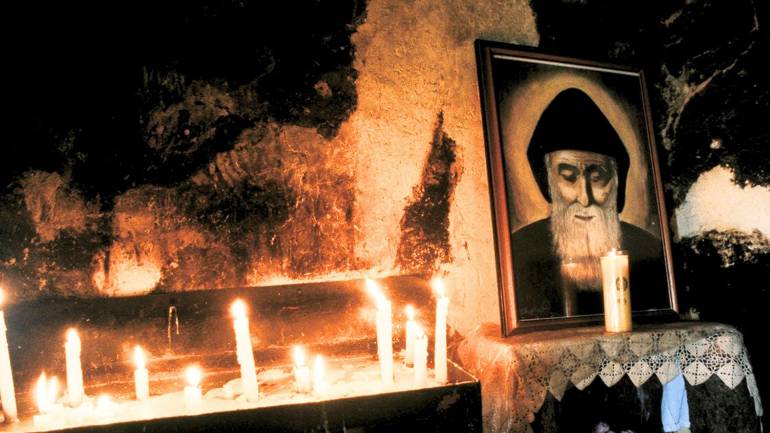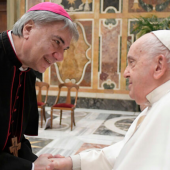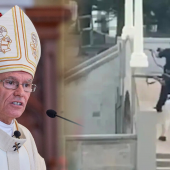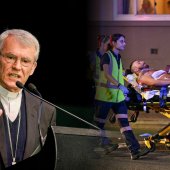‘Fragrant Miracle’ in Naples: St. Charbel’s Intercession Draws Global Devotion

A parish in the heart of Naples, Italy, recently became the site of what many are calling a miraculous sign, an event attributed to the intercession of St. Charbel Makhlouf, the beloved Lebanese hermit-saint whose legacy continues to transcend borders, cultures, and continents.
The reported miracle occurred on July 24 at St. Ferdinand Church, during a Mass celebrated in honor of St. Charbel’s liturgical memorial. According to CNA, more than 500 faithful, many of them sick or suffering, filled the historic Neapolitan church to seek healing and grace.
At the end of the Eucharistic celebration, Msgr. Pasquale Silvestri, the parish priest, began anointing the faithful with blessed oil sent from the Maronite Curia in Rome, especially for the occasion. As the long line of the sick grew, the priest noticed the oil in the jar was nearly depleted.
“I was afraid I wouldn’t have enough for everyone,” Msgr. Silvestri later wrote in a letter to Fr. Elias Hamhoury, former postulator of St. Charbel’s cause for canonization. But miraculously, after anointing the last person, he found the jar unexpectedly refilled. “I couldn’t believe what I was seeing,” he said.
Speaking to ACI Prensa, CNA’s Spanish-language partner, the priest confirmed the details of the event, noting that he had even turned the jar upside down repeatedly to use the last drops. Later, when placing it back into its case, he realized it was full again, and “weighed more than before.” When he shared this with the congregation, “everyone applauded.”
While careful not to label himself a miracle worker, Msgr. Silvestri emphasized that “there was a production of matter; this is a very serious thing,” and that he followed canon law by immediately notifying the postulator of the saint.
The Cedars of Lebanon: A Sign from the East
The day after the event, a group of Lebanese pilgrims visited the church and asked to smell the oil. To their astonishment,the jar emitted the distinct aroma of the cedars of Lebanon, an iconic symbol of St. Charbel’s homeland and of his monastic simplicity rooted in the East.
St. Charbel, born Youssef Antoun Makhlouf on May 8, 1828, hailed from Beqaa-Kafra, a village near Lebanon’s ancient “Cedars of God” trees revered for centuries and even referenced in the Bible. He became a Maronite monk and hermit, known for his austere life of prayer, penance, and deep spiritual wisdom. His tomb in Annaya, Lebanon, remains one of the most visited Christian pilgrimage sites in the Middle East.
His sanctity and powerful intercession have sparked devotion not only in Lebanon but across the world, including Asia. In countries such as the Philippines, India, Sri Lanka, and Vietnam, communities have built shrines in his honor, praying for healing, peace, and divine intervention. His life has served as a powerful bridge between Eastern spirituality and global Catholicism.
“I didn’t know him well,” Msgr. Silvestri shared. “But when I came across his story, I was deeply moved. I put up a picture of him in my church, and devotion simply grewfrom there.”
As reported by CNA, the now-refilled bottle of oil has been secured and made available to Church authorities for further investigation. Whether the event is formally recognized as a miracle remains to be seen, but for many, the experience has already deepened their faith, and brought new attention to the enduring legacy of St. Charbel, the silent saint of Lebanon.
Radio Veritas Asia (RVA), a media platform of the Catholic Church, aims to share Christ. RVA started in 1969 as a continental Catholic radio station to serve Asian countries in their respective local language, thus earning the tag “the Voice of Asian Christianity.” Responding to the emerging context, RVA embraced media platforms to connect with the global Asian audience via its 21 language websites and various social media platforms.












